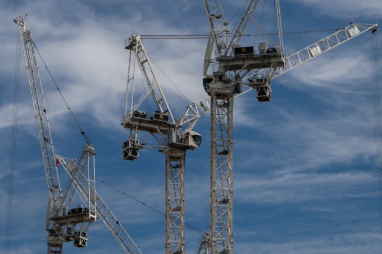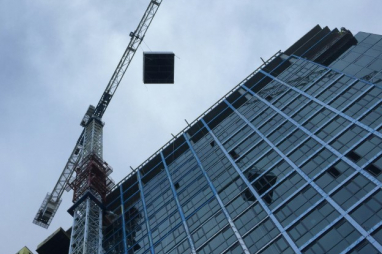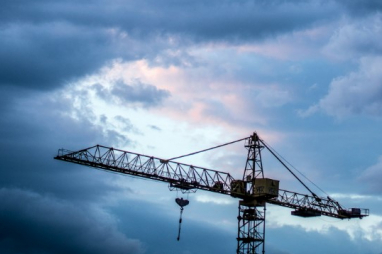- nike factory outlet online shopping
- womens air jordan 6 barely rose dh9696 100 release date
- michael jordan outlet store
- nike huarache 2004 black mustang gt manual South Beach CZ0328 - 400 2021 Release Date Info - nike huarache 2004 black mustang gt manual , IetpShops
- Air Jordan 1 Outlet Store online
- new air jordan 1 high og osb dian blue chill white cd0463 401
- Air Jordan 1 Mid Bred 554724 074 2020 Release Date 4
- nike air force 1 low white gold dc2181 100 release date info
- Nike Blazer Mid 77 Catechu DC9265 101 Release Date
- air jordan 4 og fire red DC7770 160 release details price
- Home
- News and analysis
- Info hubs
- Events
- Video
- Case Studies
- About us
- Magazine
- Advertising
Produced for the industry by the Association for Consultancy and Engineering
News
Construction sector downturn eases in December, says PMI report

The construction sector downturn eased in December, according to the latest PMI report.
December data indicated another solid fall in UK construction activity, although the rate of decline eased to the slowest since the current phase of decline began last September.
A sustained slump in house building was the main factor holding back construction output, which survey respondents linked to elevated interest rates and subdued confidence among clients.
Improving supply conditions continued in December, with delivery times for construction items shortening for the tenth month in a row.
Price discounting among suppliers contributed to a moderate fall in average cost burdens across the construction sector at the end of 2023.
At 46.8 in December, the headline S&P Global UK Construction Purchasing Managers’ Index™ (PMI®) – a seasonally adjusted index tracking changes in total industry activity – was below the neutral 50.0 mark for the fourth month running.
However, the index was up from 45.5 in November and the highest for four months.
House building remained the weakest-performing category of construction work in December (index at 41.1), despite the rate of decline easing to its slowest since July 2023.
Civil engineering activity (index at 47.0) also posted a softer pace of contraction at the end of last year.
Commercial construction meanwhile declined only modestly (index at 47.6), but the speed of the downturn accelerated to its fastest since January 2021.
Some firms noted that concerns about the domestic economic outlook, alongside elevated borrowing costs, had led to greater caution among clients.
Total new work decreased at the slowest pace since the current period of decline began in August 2023.
Subdued customer demand across the house building sector was often cited as a factor leading to reduced order books.
A softer decline in new work and hopes of a turnaround in demand conditions during 2024 contributed to a renewed rise in employment numbers in December.
However, the rate of job creation was only marginal.
Latest data indicated somewhat upbeat business expectations at UK construction companies for output levels during the year ahead.
Around 41% of the survey panel anticipate an increase in business activity over the course of 2024, while only 17% predict a decline.
Anecdotal evidence suggested that subdued forecasts for the UK economy were a key concern, while hopes of reduced interest rates and a turnaround in market confidence were factors cited as likely to boost construction activity
Tim Moore, economics director at S&P Global Market Intelligence, which compiles the survey said: "Construction companies experienced another fall in business activity at the end of 2023 as weak order books meant a lack of new work to replace completed projects.
“House building was the worst-performing area of construction activity, but even in this segment there were signs that the downturn has started to ease.
"Elevated borrowing costs and a subsequent slump in market confidence were the main factors leading to falling sales volumes across the construction sector in the second half of 2023.
“Survey respondents also continued to cite worries about the broader UK economic outlook, especially in relation to prospects for commercial construction.
"However, expectations of falling interest rates during the months ahead appear to have supported confidence levels among construction companies.”
Brian Smith, head of cost management and commercial at AECOM, said: “The traditional December slump in activity – fuelled by stormy weather and a quiet festive season – won’t itself concern the industry. But it was another month of decline for a sector struggling for momentum, and positive signs are currently hard to come by.
“Construction firms are at a heightened risk of insolvency over the next 12 months and this is particularly true for housebuilders, with high borrowing costs and expected falling house prices continuing to dampen the market.
“With a general election on the horizon, firms across the sector will be hopeful of the wider economy gaining fresh impetus.
“For the time being though, it’s critical that supply chains work collaboratively to avoid the knock-on effects of individual contractors running into challenges.”
Data was collected from December 6-21, 2023.





